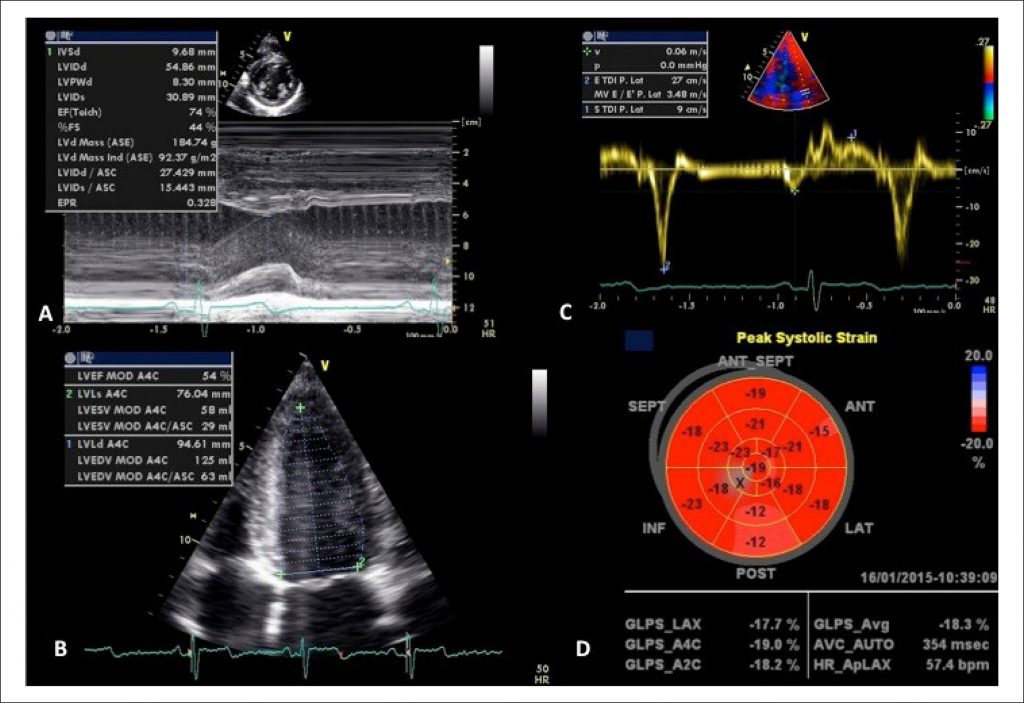Arq. Bras. Cardiol. 2017; 109(1): 87-89
Symptomatic Exercise-induced Intraventricular Gradient in Competitive Athlete
DOI: 10.5935/abc.20170075
Case Report
We describe the case of a 17-year-old caucasian male tennis player, training a mean of 20-24h/week, refereed for evaluation in Sport’s Cardiology clinic due to symptoms of dizziness on strenuous exercise, relieving soon after decubitus. The athlete denied other concomitant complaints, namely thoracic pain, palpitations, syncope or decrease in physical performance. Although this is the most symptomatic episode, he revealed other prior episodes with similar presentation, but less intense and occurring in environments with high temperatures. Personal/family history was unremarkable and all pre-competitive evaluations were normal and without restrictions for competitive sport. Physical examination did not show significant findings – cardiac evaluation was normal, heart rate and blood pressure at rest were 52 bpm 121/64mmHg respectively.
The 12-lead electrocardiogram and transthoracic echocardiogram did not show pathological findings, only cardiac physiological adaptations to exercise (). Subsequently the athlete underwent a treadmill exercise stress echocardiogram revealing an excellent functional capacity (19’09’’ of Bruce protocol, 19.3METs), but with reproduction of symptoms (dizziness) in the peak of exercise with simultaneous decrease in systolic blood pressure (185➔90mmHg) and detection of intraventricular gradient (IVG) – at least 69mmHg (). In the first minute of recovery the symptoms disappeared and blood pressure normalized.
[…]
1,006

